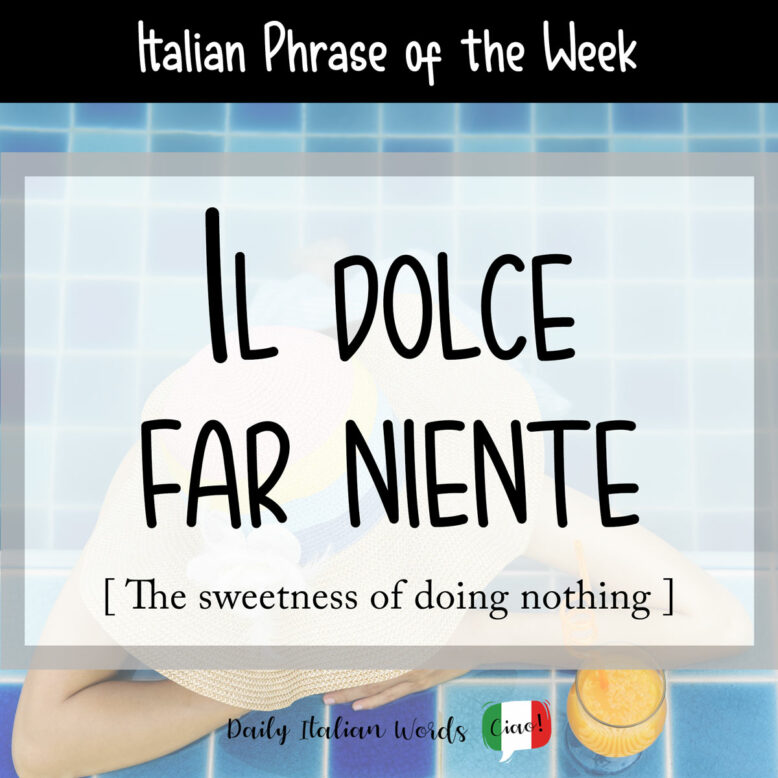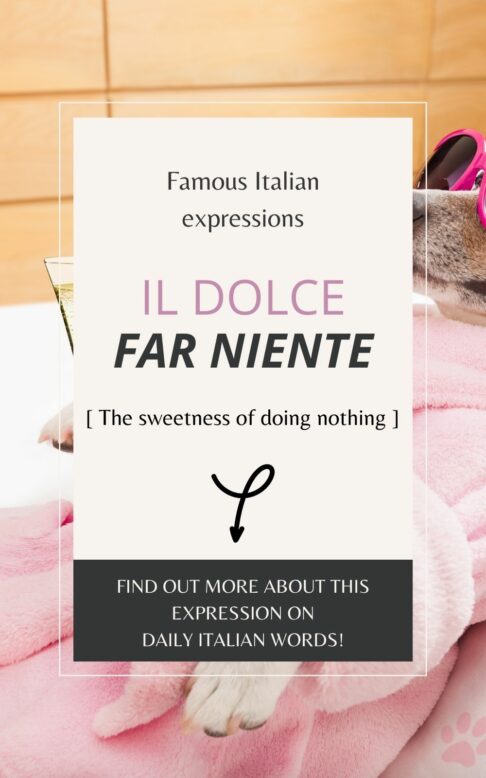One of the most memorable scenes from the movie Eat Pray Love is when the protagonist Elizabeth (played by Julia Roberts) is sitting in a local barber shop, talking with her Italian tutor and his friend about the Italian expression Il dolce far niente.

In the words of the tutor, this phrase translates as the sweetness of doing nothing.
It is made up of four words – il (the), dolce (sweet), far (short form of fare meaning to do or make) and niente (nothing) – so literally it translates as the sweet doing nothing.

In the scene, the friend pokes fun at Americans for not knowing how to enjoy life because they work too hard. He suggests that while Americans feel they have to earn a break, Italians know they deserve one. They can appreciate the enjoyment that comes from doing nothing in particular.
It’s important to note that this expression, much like the other clichéd phrase la dolce vita, is rarely used by Italians in a serious context. In fact, it is much more common to hear it used by English speakers (or more specifically, those who have watched Eat Pray Love or read the book upon which it is based) in their idealised descriptions of the Italian lifestyle.

Heather Broster is a graduate with honours in linguistics from the University of Western Ontario. She is an aspiring polyglot, proficient in English and Italian, as well as Japanese, Welsh, and French to varying degrees of fluency. Originally from Toronto, Heather has resided in various countries, notably Italy for a period of six years. Her primary focus lies in the fields of language acquisition, education, and bilingual instruction.


